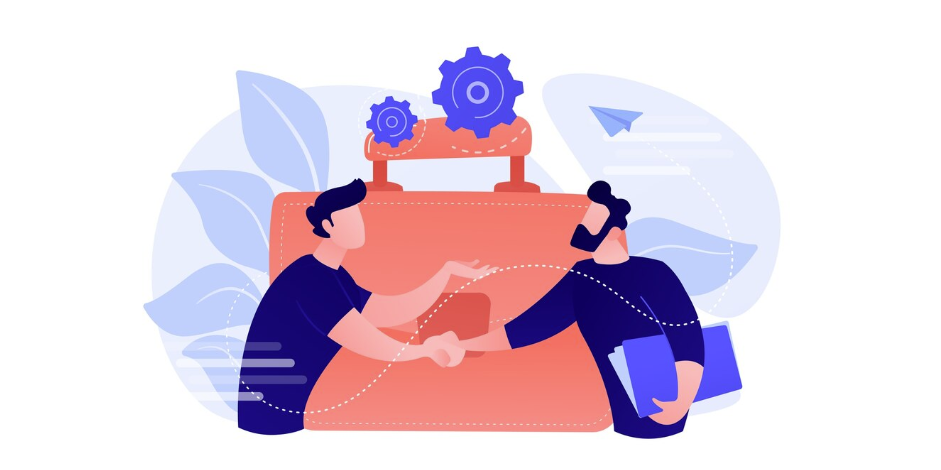When it comes to digital payments, Square has quickly become a favorite for businesses across the U.S. But as your business grows, you may need custom solutions that Square’s basic setup doesn’t cover. Hiring a Square developer is the answer. In this guide, we’ll explore everything you need to know about hiring Square developers, from understanding their role to evaluating skills and budgeting costs.
Overview of Square and Its Role in Modern Business
Square, started by Jack Dorsey and Jim McKelvey in 2009, has changed how businesses handle payments. Originally, it was a simple way to accept credit cards on a mobile device. Now, Square is a full platform that helps businesses manage transactions, track inventory, and understand customer data. With Square, businesses of all sizes—like small retail shops, restaurants, and service providers—can manage their operations from one place. This all-in-one approach makes Square a popular choice for businesses that need easy, reliable solutions for payments and management.
Square offers tools like Square POS (Point of Sale), which lets businesses track sales, manage inventory, and get real-time data on customer preferences. This helps owners make smart decisions about what to stock and how to improve the customer experience. Square also provides business insights and analytics, making it easy to see patterns and adjust as needed. For restaurants, Square even offers online ordering and contactless payment options, which have become more important since the COVID-19 pandemic.
Why should you hire a Square developer? Hiring a Square developer can be a smart move if your business relies on the Square platform. A Square developer knows how to make the most of Square’s features and can customize the platform to fit your specific needs. They can connect Square with other tools you use, like customer relationship management (CRM) software or your accounting system, to ensure data flows smoothly and reduce manual work.
With a Square developer, you can get custom reports, automated processes, and even unique applications that fit your business perfectly. For instance, if you have a specific way you need to manage inventory or a unique way to handle customer payments, a developer can tailor Square to support these needs. This helps you save time and focus more on your business, while also creating a better experience for your customers.
In short, a Square developer can help you get the most out of the platform, improve efficiency, and provide a smoother customer experience. If you want to make Square work exactly the way you need it to, hiring a developer can be a great investment.
Understanding Square Development
Square’s flexibility and user-friendly interface make it especially valuable for small and medium-sized businesses that need an all-in-one solution without the complexity or cost of multiple separate tools. By consolidating key functions like POS, e-commerce, payroll, and reporting into a single platform, Square helps business owners reduce operational challenges and focus on growth and customer satisfaction.
For example, businesses using Square and Salesforce POS and inventory management tools can avoid stockouts by setting low-inventory alerts, ensuring popular products are always available for customers. This level of control is especially helpful for retail stores, restaurants, and service-based businesses that rely on accurate, real-time inventory tracking.
In addition, Square’s platform supports contactless payments and digital receipts, aligning with modern consumer preferences and making transactions safer and quicker. Businesses can also benefit from Square’s ability to integrate customer data, making it easier to engage customers through personalized marketing, loyalty programs, and targeted promotions.
For companies with more advanced needs, Square’s API and developer tools offer the freedom to customize the platform. Square developers can build features that integrate Square with other tools like CRMs, accounting systems, or industry-specific software, allowing for seamless data flow and reducing the need for manual data entry. This customization can help businesses optimize their workflows, saving time and minimizing the risk of errors.
In today’s fast-evolving digital landscape, Square remains a powerful asset for businesses wanting to streamline operations, meet customer expectations, and stay competitive. Whether it’s through simplifying payroll, expanding online sales, or customizing the platform with developer support, Square provides essential tools that drive efficiency and enhance customer experience.
Table 1. Key Features and Benefits of Square for Businesses
| Feature | Feature |
| POS System | Manages sales, inventory, and reports easily |
| Online Payment | Expands customer base with remote payments |
| Payroll & Invoicing | Streamlines employee and client management |
| Data Analytics | Provides insights to boost performance |
Typical Use Cases for Square Developers
1. Retail: Retail: Creating Custom POS Setups and Online Payment Gateways
Retail businesses often require POS systems that not only handle payments but also integrate with their inventory, customer management, and sales order software. A Square developer can customize POS setups to fit the unique workflows of retail stores, incorporating features like loyalty programs, custom receipts, or barcode scanning. They can also set up online payment gateways, allowing retail businesses to easily expand into e-commerce and synchronize online and in-store sales.
2. Restaurants: Integrating menu systems and tracking orders.
For restaurants, Square developers can integrate Square with digital menu systems and order-tracking software. This allows restaurant staff to take orders, manage tables, and handle payments all from one system, which reduces errors and speeds up service. Square developers can also add functionality to support online ordering and delivery, helping restaurants offer convenient service options that align with customer demand for digital ordering. Custom reporting for menu items and peak hours can also help restaurants make informed decisions on staffing and menu optimization.
3. Service-Based Businesses: Building appointment booking and scheduling apps.
For service-based businesses like salons, fitness centers, or consulting firms, Square developers can build appointment booking and scheduling features that integrate seamlessly with Square’s payment system. This allows customers to book appointments and make payments upfront or on-site, improving convenience and reducing no-shows. Developers can customize these apps to send reminders, manage staff schedules, and track client information, providing an all-in-one solution for handling bookings, scheduling, and payments.
Types of Square Developers
Square development requires various skill sets, so understanding the different types of developers helps in choosing the right one.
When it comes to hiring Square developers, it’s important to understand the different types of developers who specialize in various aspects of Square’s platform. These developers have diverse skill sets that align with the different needs of businesses using Square. Here’s a breakdown of the key types of Square developers:
CMS Developers (Content Management System Developers)
CMS developers focus on managing and customizing the content side of websites or apps. For businesses using Square for e-commerce or customer interactions, CMS developers ensure that the content management system integrates seamlessly with Square’s point of sale (POS) and inventory systems. They help you create a smooth, user-friendly interface for both customers and admins, improving the overall user experience.
Square API Integrators
Square offers a robust API that allows businesses to integrate Square’s functionality with other systems. Square API integrators specialize in customizing and expanding Square’s capabilities by connecting it to your other software tools like CRM systems, accounting platforms, and inventory management solutions. These developers help automate processes, reduce manual data entry, and ensure that data flows smoothly between systems.
Full-Stack Square Developers
Full-stack developers are versatile professionals who can handle both front-end and back-end development. They work with Square’s user interfaces and data management systems to ensure that both customer-facing and business-facing systems operate effectively. Full-stack Square developers can help you build customized applications that interact with Square’s various features while offering end-to-end solutions from UI design to data management.
Front-End Square Developers
Front-end developers focus on the look and feel of your website or application, ensuring it is visually appealing, easy to navigate, and responsive. For businesses using Square, these developers specialize in making Square’s e-commerce platform visually seamless, with custom templates, checkout systems, and interactive elements that engage customers.
Back-End Square Developers
Back-end developers work on the server side of your business’s digital infrastructure. In the context of Square, they handle integrations with databases, manage transactions, and ensure that the data flow between Square’s platform and your business’s backend systems is secure and efficient. These developers play a crucial role in ensuring that the entire payment system works flawlessly, and they often handle tasks like inventory management and sales data processing.
Mobile Square Developers
With many businesses using Square on mobile devices for on-the-go transactions, mobile Square developers specialize in creating mobile apps that integrate with Square’s platform. Whether it’s a custom mobile point-of-sale system or an e-commerce app, these developers ensure that the user experience is consistent across desktop and mobile platforms, providing a smooth experience for both customers and employees.
Square Payment System Developers
These developers specialize in integrating and customizing Square’s payment system for specific business needs. Whether you’re handling in-person payments, online transactions, or recurring billing, Square payment system developers can create custom payment workflows, add multiple payment options, and ensure that your payment system is secure and optimized for your business model.
Square E-Commerce Developers
Square offers a range of tools for e-commerce businesses, from online stores to integrated POS systems. E-commerce developers with Square expertise can create online stores, integrate payment gateways, and manage product catalogs within Square’s platform. These developers help businesses build fully customized e-commerce solutions that enhance the customer experience while maintaining seamless integration with Square’s backend systems.
Square Custom Reporting Developers
Developers who specialize in custom reporting work with Square’s analytics tools to create reports that are tailored to a business’s specific needs. They ensure that you get detailed, actionable insights from your data, such as sales trends, customer behavior, and inventory status, by customizing reports and dashboards that align with your business goals.
Benefits of Hiring Square Developers
Hiring a Square developer offers numerous advantages for businesses looking to make the most of Square’s capabilities. They can customize the platform to your unique business needs, ensuring it aligns perfectly with your operations. By automating key tasks, developers improve efficiency, freeing up your time to focus on growth. They can also enhance the customer experience through personalized features like loyalty programs and custom receipts, boosting engagement and retention. Developers optimize Square’s features to save time and streamline processes, giving your business a competitive edge. Additionally, their ongoing support ensures your Square system remains efficient and adaptable as your business evolves.
Here are the key benefits of hiring a Square developer:
● Customization
● Efficiency
● Enhanced Customer Experience
● Time Savings
● Competitive Advantage
● Expert Support
Where to Find Qualified Square Developers
Freelance Platforms
Freelance websites like Upwork and Freelancer have a range of Square developers. Hiring freelancers is often cost-effective, but consider communication and availability.
Development Agencies
Agencies specializing in app development offer experienced Square developers who work as a team to deliver quality solutions. A great example of such a platform is Mobilunity.
Table 2. In-House vs. Outsourced Developers
| Developer | Pros | Cons |
| In-Hose | Full control, aligns with company culture | Higher costs, long hiring process |
| Outsourced | Flexible, cost-effective, access to talent | Less control, requires clear communication plans |
Evaluating Remote vs. On-Site Square Developers
Remote developers are ideal for flexibility and cost savings, while on-site developers offer in-person collaboration and may align better with company culture.
Key Skills to Look for in Square Developers
When hiring a Square developer, it’s important to focus on both technical expertise and interpersonal qualities that can help drive success. A qualified Square developer should possess the following key skills:
● Technical Skills: Look for experience with Square API integration, payment security protocols, and UX/UI design. These skills ensure that the platform is securely integrated and provides an optimal user experience.
● Soft Skills: Strong communication, problem-solving, and adaptability are essential for collaborating effectively with your team and addressing any challenges that arise during the development process.
● Relevant Experience: A good candidate should have prior experience with Square or related fields, such as e-commerce or POS systems. This ensures they can hit the ground running and bring relevant knowledge to the table.
How to Evaluate Square Developer Candidates
Hiring the right Square developer is essential to optimizing your payment systems and business operations. The ideal candidate will have the technical expertise to handle integrations, customizations, and security while being a good fit for your team’s culture and work environment. To ensure you make the best choice, it’s important to follow a structured process when evaluating Square developer candidates. This includes assessing their technical skills, experience, problem-solving abilities, and how well they align with your business needs. Below are key steps to effectively evaluate Square developer candidates:
1. Screening Resumes and Portfolios
2. Technical Interview Questions
3. Sample Projects and Practical Tests
4. Assessing Cultural Fit and Work Style
Look for candidates with relevant experience in Square or similar platforms. Check their past projects for experience in payment systems, POS integrations, or e-commerce solutions.
Ask questions related to Square API integration, payment security, and specific scenarios that apply to your business. This helps assess their technical depth and problem-solving abilities.
Assign a small project or test to evaluate their hands-on skills, such as creating a simple integration or customization using Square’s features. This shows how they approach problem-solving and their coding proficiency.
Ensure the candidate is a good fit for your company’s environment by discussing their communication preferences, collaboration style, and how they handle challenges and deadlines. This ensures smooth integration into your team.
By following these steps, you can effectively evaluate Square developer candidates and choose the right fit for your business needs.
Integrating Square Development into Your Business
Successfully integrating Square development into your business requires careful planning, coordination, and ongoing communication. Whether you’re customizing a point-of-sale (POS) system, implementing payment gateways, or integrating Square with other software, having a clear strategy in place is key to achieving your objectives. It’s important to break down the project into manageable goals, track progress, and ensure smooth communication throughout the development process. Below are essential steps for integrating Square development into your business operations:
1. Setting Project Goals and Timelines: Establish clear objectives and milestones for your Square development project.
2. Collaboration Tools for Managing Square Development: Use tools like Slack, Trello, or Monday.com for efficient communication and tracking.
3. Monitoring Progress and Setting Milestones: Regularly check in with developers to ensure they meet set deadlines.
Conclusion
Hiring a Square developer is a smart investment if you want to streamline payment processes, enhance customer experience, and make data-driven decisions. From finding qualified candidates to evaluating skills and setting up legal safeguards, this guide has covered it all. By hiring the right developer, you can ensure Square is a powerful asset for your business’s success.
Published: November 17, 2024





